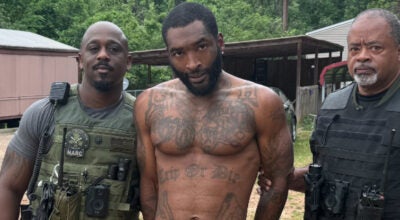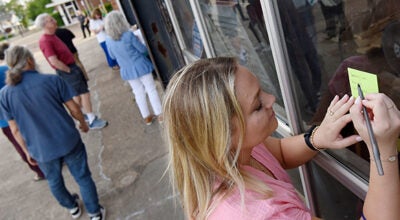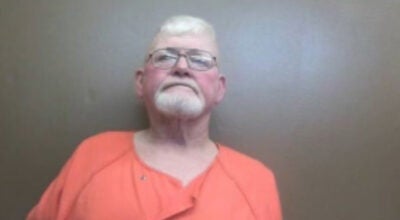Green Wave students experiment with DNA samples
Published 12:01 am Tuesday, February 19, 2013

Ben Hillyer / The NAtchez Democrat —
Cathedral biomedical research student Ansleigh Thibodeaux leans in closer to look at the results from the DNA test that she and her lab partners Solias Whitaker, far right, Alex Weadock, second from right, and Chandler Russ conducted Monday during a molecular biology workshop conducted by Cornell University professor Dr. Mike Darwin Yerky.
NATCHEZ — A science lab at Copiah-Lincoln Community College Natchez could have easily been mistaken for the set of the TV show CSI Monday as Cathedral students participated in a molecular biology workshop.
The workshop gave students the opportunity to cut DNA samples with restriction enzymes to simulate the type of work that is done to prepare and interpret evidence for a criminal case.
The goal of the laboratory workshop was to take three different DNA samples — one representing a sample from a baby, one from its mother and the third from an individual suspected of being the father — and determine if there was enough evidence to prove if the man was the father.

Ben Hillyer / The Natchez Democrat — Sarah Garrity and Erin Hicks use distilled water to wash off blue stain from their gel medium.
Dr. Mike Darwin Yerky, outreach coordinator of the Cornell Institute for Biology Teachers, led the workshop as part of an outreach program for students of Co-Lin instructor Nan McGehee’s students.
The workshop, Yerky said, is brought to the campus of whichever teacher attends a two-week molecular biology workshop at Cornell.
When Cathedral biology teacher Denise Thibodeaux attended the conference three years ago, Yerky brought the workshop to Natchez for the first time.
“I thought it was so great when he came down last time, so I wanted to bring my group of students again this time,” Thibodeaux said. “Some of the students in my biomedical research class have seen experiments like this before, but we also tried to get other students in here to expose them to this material.”
Yerky said the workshop is something he enjoys bringing to high school and college students across the country.
“Sometimes you’ll get a group who are not really into the program, but everyone here seems to be having fun and is into it,” Yerky said. “It’s good to see them having fun with science and show them something that they are hopefully interested in after school.
“It also shows them that it’s a lot of hard work — not like CSI show where all this testing is done in 30 minutes.”
The Cathedral students were in the lab from 8 a.m. until 2:30 p.m. Monday, but the hard work didn’t deter the groups of students eager to find out the results of the experiment.
“This is the first time we’ve used restriction enzymes, so that was something different and new,” senior Sarah Beth Willard said. “I hope we figure out if he’s the father.”
To help gather the evidence for the test, the students digested each of the samples with a restriction enzyme and separated the fragments on an agarose gel electrophoresis, which pulled the DNA from a negative pole to a positive pole.
Restriction enzymes are often used in laboratories to cut DNA molecules at specific sequences and generate fragments of various sizes.
And at the end of the day the experiment proved to be successful for most of the students, as the two case loads tested contained one positive match for the father and one negative.
“In one of the cases, case three, the father was off the hook,” Thibodeaux said. “In case four, it was a positive result, but they had to do more tests to prove it was actually his DNA.”
The workshop will continue today and Wednesday with McGehee’s Co-Lin students.






